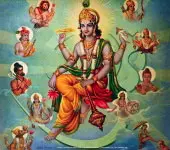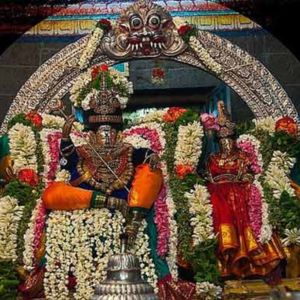जीवन्तोऽपि मृताः पञ्च श्रूयन्ते किल भारते। दरिद्रो व्याधितो मूर्खः प्रवासी नित्यसेवकः॥
According to the Mahabharata, five types of people are considered 'dead' even while they are alive. These are: the poor, the sick, the foolish, those living away from their homeland, and the perpetual servant.
1. The Poor
A poor person lacks basic needs and security. Think of a daily wage worker, Raju who lives in a big city. He struggles to find work daily. With inflation rising, his earnings are barely enough to buy food for his family. He has no savings, no healthcare, and no social support. His life is a constant fight for survival. In this state, life feels like a continuous struggle without joy or hope. Though he is alive, the constant hardship makes him feel as if he is 'dead' inside.
2. The Sick
Someone suffering from a chronic illness often feels trapped in their own body. Imagine Maya, a middle-aged woman with terminal cancer. Her days are filled with hospital visits, treatments, and pain. She can't enjoy her favorite activities or spend quality time with her family. Her illness has taken away her independence and vitality. Even though she is alive, the continuous pain and dependency make her feel disconnected from the vibrancy of life, as if she is just surviving, not truly living.
3. The Foolish
A person who lacks wisdom or understanding often makes decisions that lead to constant trouble. Take the example of Pradeep, who repeatedly falls into financial scams. Despite warnings from friends, he invests in dubious schemes hoping for quick returns. Each failure deepens his debt and despair. His lack of judgment traps him in a cycle of loss and regret. He is alive, but his foolish choices prevent him from achieving a fulfilling life, making him feel 'dead' to opportunities for growth and stability.
4. The Expatriate
Living far from one's homeland can create a deep sense of isolation and loss. Consider Sameer, an IT professional working in a foreign country. He left India for better job opportunities, but he misses his family, friends, and cultural festivals. He feels disconnected from his roots. The loneliness of being away from his homeland makes his life feel incomplete. Even though he has a good job, the emotional emptiness makes him feel like a part of him is 'dead.'
5. The Perpetual Servant
A perpetual servant lives a life dominated by the needs and commands of others, losing their sense of self. Think of Anita, a domestic worker who works in multiple households. Her day starts early and ends late at night. She has no time for herself, no personal dreams, and no sense of freedom. Her life is entirely about serving others, with no space for her own aspirations. Although she is alive, this life of constant service without personal growth or fulfillment makes her feel 'dead' to her own potential.
This verse highlights that certain conditions can make a person feel as if they are 'dead' even while living. Poverty, illness, lack of wisdom, separation from home, and a life of endless service can drain the joy and purpose from life. These examples show how important it is to seek a life filled with purpose, connection, wisdom, and balance. The verse reminds us to empathize with those in these situations and to strive for a more meaningful and fulfilling life.
To avoid falling into these five categories that make one feel 'dead' even while living, we can take proactive steps to improve our quality of life. Here’s how to address each situation:
1. Avoiding Poverty
- Education and Skills: Focus on acquiring education and practical skills. Education opens doors to better job opportunities and financial stability. Continuous learning and skill development can increase employability and income potential.
- Financial Planning: Practice good financial habits like budgeting, saving, and investing wisely. Avoid unnecessary debt and spend within your means. Building an emergency fund can provide a safety net during tough times.
2. Avoiding Chronic Illness
- Healthy Lifestyle: Adopt a healthy lifestyle by eating a balanced diet, exercising regularly, and avoiding harmful habits like smoking and excessive drinking. Regular physical activity can prevent many diseases.
- Regular Check-ups: Regular health check-ups can detect health issues early, making treatment more effective. Preventive care is often less costly and less invasive than treating advanced diseases.
- Mental Health: Take care of mental health through stress management techniques like meditation, yoga, or counseling. Mental health is as important as physical health for overall well-being.
3. Avoiding Foolishness
- Seek Knowledge: Cultivate a habit of learning and staying informed. Read books, attend workshops, and seek advice from experienced individuals. Knowledge and wisdom help in making sound decisions.
- Reflect Before Decisions: Practice mindfulness and think critically before making important decisions. Consider the long-term consequences of your actions.
- Learn from Mistakes: Understand and accept past mistakes as learning opportunities. Be open to feedback and willing to adapt and change based on experiences.
4. Avoiding the Feeling of Expatriation
- Stay Connected: If living away from home, stay connected with family and friends through regular communication. Technology can bridge the gap and reduce feelings of loneliness.
- Create a Community: Engage with local communities, cultural groups, or social organizations. Building a network of support in a new place can create a sense of belonging.
- Embrace New Experiences: While staying connected to your roots, also embrace the new culture and experiences. This dual engagement can reduce the sense of being an outsider.
5. Avoiding Perpetual Servitude
- Assertiveness and Boundaries: Learn to set healthy boundaries in personal and professional life. Being assertive about your needs and rights can prevent exploitation and burnout.
- Pursue Personal Growth: Dedicate time to your own interests, hobbies, and self-development. Engage in activities that bring joy and fulfillment outside of work or service.
- Seek Empowerment: Aim for roles or jobs that provide growth opportunities, autonomy, and fair compensation. Empower yourself through education, training, or entrepreneurship.
By actively working towards financial stability, maintaining good health, gaining wisdom, building connections, and asserting independence, one can avoid the situations described in the verse. It’s about striving for balance and fulfillment in life, ensuring that each day is lived with purpose, joy, and resilience. This approach not only prevents one from feeling 'dead' while alive but also enriches life with meaning and contentment.
Comments
Read more comments
Knowledge Bank
Why are Utsavas performed?
1. For the delight of Gods. 1. For the welfare of the devotees. 3. For the removal of obstacles in worship. 4. Pacifying negativities. 4. Remedy for sins. Performance of Utsavas is traced back to the celebration of the Devas after Indra killed Vritrasura. Knowing this helps you understand their spiritual significance, which can enhance your participation and appreciation of these rituals
The Devotion of the Simple Farmer - A Lesson in True Piety
Sage Narada asked Lord Vishnu who His greatest devotee was, expecting to hear his own name. Vishnu pointed to a simple farmer. Intrigued, Narada observed the farmer, who remembered Vishnu briefly each morning and evening amidst his daily toil. Narada, frustrated, questioned Vishnu again. Vishnu asked Narada to carry a pot of water around the world without spilling a drop. Narada did so, but realized he hadn't thought of Vishnu even once. Vishnu explained that the farmer, despite his busy life, remembered Him twice daily, showing true devotion. This story teaches that sincere devotion amid worldly duties holds great value. It emphasizes that true devotion is measured by the quality and consistency of one's remembrance of the divine, even amidst daily responsibilities, illustrating that even small, heartfelt acts of devotion can earn divine favor.
Recommended for you
Why Did Valmiki Maharshi Approach Sage Narada For Guidance?

Someone like Valmiki is responsible. He has to be sure that the person whom he asking is capable, authoritative, and can give authentic guidance. ....
Click here to know more..Without understanding Lakshmi Devi you can not understand Sri Hari

Kapaleeshwara Stotram

kapaalinaamadheyakam' kalaapipuryadheeshvaram' kalaadharaardhashekharam' kareendracharmabhooshitam .....
Click here to know more..